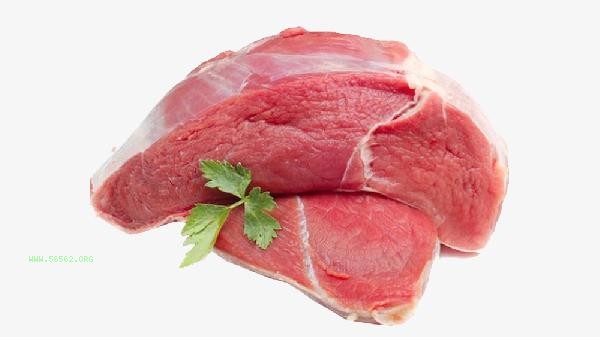Teenagers who cannot grow meat no matter how much they eat may be related to genetic factors, poor gastrointestinal absorption function, imbalanced nutrient intake, metabolic abnormalities, chronic diseases, and other factors. Suggestions for intervention include adjusting dietary structure, improving digestive function, and identifying potential diseases.

1. Genetic factors
Some adolescents have high basal metabolic rate or lean body shape due to family genetic characteristics, which is a normal physiological phenomenon. This type of situation does not require excessive intervention. It is advisable to increase the intake of high-quality protein and healthy fats, such as eggs, fish, nuts, etc., in combination with moderate strength training to help build muscle.
2. Gastrointestinal absorption problems
Chronic gastritis, lactose intolerance, and other digestive system problems can affect nutrient absorption. Symptoms such as postprandial bloating and diarrhea can be diagnosed through gastrointestinal endoscopy. It is recommended to choose easily digestible food such as millet porridge and fermented pasta, avoid cold and raw food stimulation, and take bifidobacteria triple viable capsules, pancreatin enteric coated tablets and other digestive aids according to the doctor's advice when necessary.
3. Imbalance in nutrient intake
A simple high carbohydrate or high-fat diet can lead to excess calories but insufficient protein. It is recommended to ensure a daily protein intake of 1.5 grams per kilogram of body weight, with priority given to chicken, beef, soy products, etc., and to supplement vitamins with dark vegetables such as broccoli and carrots. You can choose a combination of high nutrient density such as yogurt and oatmeal as an extra meal.

4. hyperthyroidism
Hyperthyroidism can lead to rapid metabolism and weight loss, often accompanied by symptoms such as excessive sweating and palpitations. Diagnosis should be confirmed through thyroid function examination, and after diagnosis, anti thyroid drugs such as methimazole tablets can be used according to medical advice. It is necessary to increase the intake of calcium and vitamin D in diet, such as milk, sesame, etc., and avoid seafood with high iodine content.
5. diabetes or parasitic infection
Type 1 diabetes or intestinal parasitic infection may lead to nutrient loss. If there are symptoms such as excessive drinking, frequent urination, and abdominal pain, it is necessary to seek medical examination in a timely manner. The diagnosis of diabetes requires insulin treatment, and albendazole tablets can be taken for parasite infection. Pay attention to food hygiene in daily life, cook meat thoroughly, and wash vegetables and fruits thoroughly.

It is recommended that parents regularly monitor the growth and development curve of adolescents and record their daily dietary habits. In addition to ensuring three meals a day at two o'clock, healthy snacks such as walnuts and avocados can be added appropriately. In terms of exercise, it is recommended to engage in resistance training such as swimming and pull-up exercises to avoid excessive aerobic consumption. If there is no continuous weight gain or accompanied by abnormal symptoms, it is necessary to seek medical attention promptly at a pediatrics or endocrinology department, complete blood routine, complete biochemical tests, etc. to rule out organic diseases. Be careful to avoid using weight gain drugs or health supplements on your own, and all nutritional supplements should be carried out under professional guidance.








Comments (0)
Leave a Comment
No comments yet
Be the first to share your thoughts!